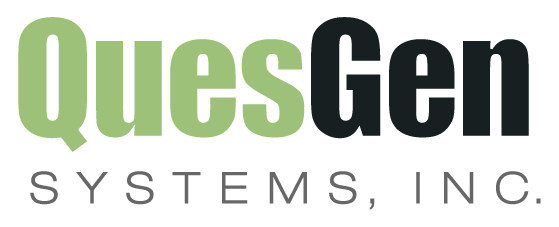Countering Gang Violence on Youth in San Jose
In San Jose, California, the Mayor’s Gang Prevention Task Force provides youth intervention services to gang-affected and gang-intentional youth. School-based intervention service programs have a strong case management component that allows staff to develop plans and strategies for youth needs.
These services include seven programs so far, such as safe campus initiatives, female intervention team, Clean Slate (tattoo removal), SJWorks (youth summer job initiative), Trauma-2-Triumph, late night gym, and a digital arts program for youth and young adults affected by gangs to provide safe and healthy outlets.
RELATIONSHIP
QuesGen has worked with City of San Jose for over 6 years.
QUESGEN’S ROLE
For this initiative, QuesGen handled data systems and storage, data strategy, and database design.

Executive Summary
More than two out of five kids in the U.S. are exposed to some form of violence. In many cases, this violence is gang-related.
Young people become significantly more likely to become perpetrators of violence in the future, or to find themselves victims again. Violence Intervention Programs (VIPs) help reduce the risk of violence in local communities by working with those affected by it.
Since 1991, The City of San Jose has run programs to address the effect of gang violence on young people. Originally, each of their program’s data was managed separately, organized in spreadsheets and text documents. This system made it difficult for staff to take case notes or to track the data for each case, and created data silos between programs.
When QuesGen’s data management system (QG-Case) was introduced in 2016, they were able to save time, move past manual data analysis, and allow their programs to communicate more effectively.
Project Goal
Reduce gang violence, provide support and guidance to gang-affected and gang-intentional youth.
The Problem: Disconnected Systems and Tedious Data Entry
With a growing Gang Intervention initiative, the City of San Jose needed a better way to manage and organize their cases. Their current solution, Microsoft Word and Excel, had proven to be insufficient for their needs and laced with inefficiencies and manual data entry.
“We found ourselves collecting the same information in three different forms at first, and realized we needed to do something,” says Superintendent Israel Canjura.
They needed multiple programs in one database, and an easy way for their teams to stay on the same page. However, the team was not familiar with databases and how they could — or should — function. They knew that as they introduced more programs, this problem would only get worse.
“When we first put the system together, I was able to collect basic demographic data, but we hadn’t really thought about how the data was going to be pulled. We needed an easier way for staff to get the information they needed.”
– Israel Canjura, Jr.
Superintendent for Youth Intervention Services, City of San Jose
Finding a Better, Visual Alternative
Any government initiative has a lot of stakeholders, often slowing new tech adoption. It took a few more years of spreadsheets before they found a solution. They’d been considering solutions like Efforts to Outcomes (ETO), which Canjura had used when he worked for a non-profit organization in San Francisco, but found it wasn’t a great fit.
“I’m a visual person, and staring at a bunch of numbers gets boring. I wanted an easier way to visualize the data for staff to make quick decisions, and I wanted to know how I can present the data to my supervisors.”
QuesGen understood the challenge and is now in the process of building some reports for them, using Power BI to show data in a visual format.
After learning about QuesGen and the QG-Case solution at a conference, Canjura liked the idea of streamlining their current workflows. He was also happy to hear that QuesGen’s team had hospital experience, because their programs needed to be HIPAA-compliant if hospitals were going to share data with them.
Partnering with QuesGen for Quick Wins
“From the very beginning, QG-Case was very cost effective,” says Canjura. The QuesGen team trained the entire staff, walking them through the whole system. The Gang Intervention teams noticed the efficiency gains immediately. Not only was it easier to add and pull data, they could also supercharge their productivity by using their voice to enter notes with QG-Case.
Like any software solution, the value increases as the organization understands the potential and matches that with its goals. This was certainly true for the City of San Jose.
Having the QuesGen team behind the software proved to be of immense value, helping the Gang Intervention team think through the data and the best ways to capture it. This also made it easier to scale their efforts.
“Any program we fund that does case management, we can plug into QuesGen and capture the info we need to capture. We never need to start from zero — we can easily scale up without having to set up a new platform for each new initiative.”

“I’d seen other systems out there, but given the constraints we had, I knew QuesGen would be able to deliver”
– Israel Canjura, Jr.
Superintendent for Youth Intervention Services, City of San Jose
What’s Changed? Putting the Data to Work for Maximum Impact
Since working with QuesGen, one of the biggest things the Gang Intervention teams have seen is that QG-Case allows them to validate their efforts. They can look at the data they collect, the support participants get, and how these contribute to participants not going back to the hospital or getting involved in violence again.
The task force is continually figuring out new uses with QG-Case.
“I like to think big, and see how our information can help us do our work better. QuesGen always hears out my crazy ideas and does a great job making adjustments to help us do our job. And they make suggestions for new ideas to help embed them into our existing platform.”
For instance, QuesGen builds data tables based on the reports needed to get funding, and has set up notifications so the task force is alerted when a new participant is added.
Advice from San Jose About Starting with QuesGen
For others looking to get started with QuesGen, Canjura suggests they consider how they might want to use it, and the needs they need to address. He points out that with the pace his team moves, QuesGen is a great partner since they build as they go.
“I like that QuesGen is able to build the ship based on our needs,” says Canjura. “They meet each challenge we have, which is great. Some of the other systems we’ve tried are fine, but they lack a lot of what QuesGen offers.
Our current software solution is built for us — not anybody else. Different programs and communities have different needs, and you need a platform that’s adaptable. For some, that’s a monumental task. I don’t have that issue with QuesGen.”

Israel Canjura, Jr.
Superintendent for Youth Intervention Services, City of San Jose
